Medically reviewed by Dr Chandril Chugh,
Renowned Neurologist and American Trained Specialist
Male infertility is a prevalent issue that affects up to half of infertile couples. It can be a source of frustration and distress for individuals and couples trying to conceive. Understanding the causes of male infertility is essential in determining appropriate solutions and seeking the necessary medical help.
There are various factors that can contribute to male infertility. Low sperm production, abnormal sperm function, or blockages that prevent the delivery of sperm are some common causes. In addition, illnesses, injuries, chronic health problems, and lifestyle choices can also affect male fertility.
Fortunately, there are numerous treatments available to address male infertility. These treatments range from medications and lifestyle changes to more advanced assisted reproductive techniques. With the right diagnosis and appropriate interventions, many couples can overcome male infertility and fulfill their dreams of starting a family.
Key Takeaways:
- Male infertility affects up to half of infertile couples.
- It can be caused by factors such as low sperm production, abnormal sperm function, or blockages that prevent sperm delivery.
- Various illnesses, injuries, chronic health problems, and lifestyle choices can contribute to male infertility.
- There are numerous treatments available to address male infertility, including medications, lifestyle changes, and assisted reproductive techniques.
- Seeking medical help and guidance is crucial for individuals and couples experiencing male infertility.
Male Infertility Symptoms
The main sign of male infertility is the inability to conceive a child. However, there can also be other signs and symptoms that may indicate an underlying problem, such as difficulty with ejaculation or reduced sexual desire. Other symptoms may include:
- Pain or swelling in the testicle area
- Recurrent respiratory infections
- Inability to smell
- Abnormal breast growth
- Decreased facial or body hair
- A lower than normal sperm count
It’s important to note that experiencing these symptoms doesn’t necessarily mean you are infertile. However, if you are concerned about your fertility or experiencing any of these symptoms, it’s advisable to consult a healthcare provider for further evaluation and guidance.

Infertility can be distressing, but remember that there are many available treatments and solutions to address male infertility. Seeking medical help is the first step towards finding answers and potential solutions to start a family.
When to See a Doctor
If you have been unable to conceive a child after one year of regular, unprotected intercourse, it is recommended to see a doctor for male infertility. However, there are certain situations where you should seek medical help sooner:
- If you experience issues with sexual function, such as difficulty achieving or maintaining an erection, or problems with ejaculation.
- If you have pain or swelling in the testicle area, which could indicate an underlying problem.
- If you have a history of testicle, prostate, or sexual problems, as these may contribute to male infertility.
- If your partner is over the age of 35, as fertility declines with age.
Early intervention and medical evaluation are crucial in identifying and addressing any potential causes of male infertility. Seeking medical advice and support can help you navigate the journey towards conceiving a child.

Common Causes of Male Infertility
Male fertility is a complex process that relies on the proper functioning of various factors involved in sperm production and transportation. Understanding the common causes of male infertility can help identify potential issues and guide appropriate treatment options.
Here are some of the common medical causes of male infertility:
| Cause | Description |
|---|---|
| Varicocele | Enlarged veins in the testicles that can hinder sperm production |
| Infections | Sexually transmitted infections or other reproductive system infections that can damage sperm |
| Ejaculation Issues | Conditions that affect the ability to ejaculate, such as retrograde ejaculation |
| Antibodies Attacking Sperm | Immune system disorders that cause the body to produce antibodies that target and damage sperm |
| Tumors | Benign or malignant tumors in the reproductive system that can impair sperm production or transportation |
| Undescended Testicles | Testicles that fail to descend into the scrotum, resulting in abnormal sperm development |
| Hormone Imbalances | Conditions that disrupt hormone levels, such as hypogonadism, affecting sperm production |
| Defects in Sperm Transport | Structural abnormalities or obstructions in the reproductive tract that impede the flow of sperm |
| Chromosome Defects | Genetic abnormalities that impact sperm production, such as Klinefelter syndrome |
| Problems with Sexual Intercourse | Erectile Dysfunction, premature ejaculation, or other difficulties that hinder successful conception |
| Celiac Disease | An autoimmune disorder triggered by gluten that can lead to male infertility |
| Certain Medications and Surgeries | Some medications and prior surgeries can have side effects or complications that affect fertility |
Aside from medical factors, certain environmental influences can also contribute to male infertility. These include:
- Exposure to certain chemicals or heavy metals
- Radiation or X-rays
- Overheating of the testicles
Understanding the common causes of male infertility is essential for identifying potential issues and pursuing appropriate treatment options. If you suspect male infertility, it is crucial to consult with a healthcare professional to receive a comprehensive evaluation and personalized guidance.

Continue reading to learn about health, lifestyle, and other factors that can contribute to male infertility.
Health, Lifestyle, and Other Factors contributing to Male Infertility
When it comes to male infertility, various health, lifestyle, and other factors can significantly impact fertility outcomes. Understanding these factors is crucial for individuals seeking to address their concerns and explore potential treatment options. Some of the key factors contributing to male infertility include:
When it comes to male infertility, various health, lifestyle, and other factors can significantly impact fertility outcomes. Understanding these factors is crucial for individuals seeking to address their concerns and explore potential treatment options. Some of the key factors contributing to male infertility include:
1. Health Factors Causing Male Infertility
- Smoking tobacco: Smoking has been linked to decreased sperm count, motility, and overall sperm quality.
- Alcohol use: Excessive alcohol consumption can affect hormone levels, impair sperm production, and lead to abnormal sperm function.
- Drug use: Recreational drugs and anabolic steroids can negatively impact sperm production and fertility.
- Obesity: Being overweight or obese can cause hormonal imbalances, reduce sperm quality, and increase the risk of infertility.
- Certain infections: Infections such as sexually transmitted infections (STIs) can impair sperm production and function.
- Exposure to toxins: Occupational exposure to certain chemicals, radiation, and heavy metals can affect sperm quality and fertility.
- Overheating of the testicles: Frequent exposure of the testicles to high temperatures, such as from hot baths or saunas, can impact sperm production.
- Medical conditions: Certain health conditions like liver or kidney disease can affect fertility by disrupting hormonal balance and impairing sperm production.
2. Lifestyle Factors Causing Male Infertility
- Unhealthy diet: Poor nutrition and a diet lacking in essential nutrients can negatively impact sperm health and fertility.
- Stress: Chronic stress can affect hormone levels, disrupt sperm production, and reduce sperm quality.
- Lack of exercise: Sedentary lifestyle and lack of regular physical activity can contribute to obesity, which in turn affects fertility.
- Advanced paternal age: While women are often associated with age-related fertility decline, advanced paternal age can also contribute to decreased sperm quality and fertility.
3. Other Factors Causing Male Infertility
- Genetic conditions: Some genetic disorders can affect sperm production, sperm structure, or overall reproductive function.
- Idiopathic male infertility: In some cases, the cause of male infertility remains unknown, making diagnosis and treatment challenging.
These are just some of the factors that can contribute to male infertility. It is essential to consult with a healthcare professional for a comprehensive evaluation and personalized guidance regarding your specific situation.
| Factors Contributing to Male Infertility | Effects on Male Fertility |
|---|---|
| Smoking tobacco | Decreased sperm count, motility, and quality |
| Alcohol use | Impaired hormone levels, sperm production, and function |
| Drug use (including anabolic steroids and recreational drugs) | Negative impact on sperm production and fertility |
| Obesity | Hormonal imbalances, reduced sperm quality, increased infertility risk |
| Certain infections | Impaired sperm production and function |
| Exposure to toxins | Affects sperm quality and fertility |
| Overheating of the testicles | Reduced sperm production |
| Medical conditions (liver or kidney disease) | Hormonal disruptions, impaired sperm production |
| Unhealthy diet | Negative impact on sperm health and fertility |
| Stress | Disrupted hormone levels, reduced sperm production and quality |
| Lack of exercise | Contributes to obesity, affecting fertility |
| Advanced paternal age | Decreased sperm quality and fertility |
| Genetic conditions | Affects sperm production, structure, or overall reproductive function |
| Idiopathic male infertility | Cause of infertility remains unknown |

Risk Factors for Male Infertility
Various risk factors can contribute to male infertility. It is essential to be aware of these factors that can affect your reproductive health. By understanding these risk factors, you can take proactive steps to mitigate their impact. The following are some significant risk factors associated with male infertility:
Lifestyle Factors:
- Smoking: Tobacco smoking has been linked to reduced sperm count, motility, and sperm DNA damage. Quitting smoking can improve your chances of fertility.
- Alcohol Use: Excessive alcohol consumption can negatively affect sperm production and quality. Limiting alcohol intake is advisable for optimal fertility.
- Illicit Drugs: Certain illicit drugs, such as marijuana and cocaine, can impair sperm production and have a detrimental effect on fertility.
- Obesity: Being overweight or obese can disrupt hormone levels and impair sperm production, leading to male infertility.
Medical Factors:
- Infections: Past or present infections, such as sexually transmitted infections, can damage the reproductive system and impact fertility potential.
- Exposure to Toxins: Occupational exposure to certain chemicals, pesticides, heavy metals, and environmental toxins can have adverse effects on sperm quality and fertility.
- Testicular Overheating: Frequent exposure to high temperatures, such as prolonged hot tub use, saunas, or tight clothing, can raise testicular temperature and reduce sperm production.
Medical History:
- Past Surgeries: Previous surgeries on the testicles or pelvis can cause scarring or blockages, leading to fertility issues.
- Undescended Testicles: Undescended testicles during childhood can increase the risk of infertility and other reproductive problems in adulthood.
- Genetic Disorders: Certain genetic conditions, such as Klinefelter syndrome or Y chromosome abnormalities, can impair fertility.
“Understanding the risk factors for male infertility is crucial in preserving and promoting reproductive health. By making positive lifestyle choices, seeking medical care when needed, and managing underlying medical conditions, you can increase your chances of achieving successful natural conception or exploring assisted reproductive techniques“
Diagnosis and Testing for Male Infertility
To diagnose male infertility, healthcare providers employ a comprehensive approach, encompassing a thorough review of your health history, physical examination, and various tests. These tests are aimed at assessing the different aspects of sperm health and evaluating the reproductive organs. The information gathered through these diagnostic procedures allows healthcare professionals to identify the underlying causes and develop an appropriate treatment plan.
Semen Analysis: A key component of male infertility diagnosis involves a semen analysis. During this test, a sample of semen is collected and analyzed in a laboratory to evaluate the sperm count, motility (movement), and morphology (shape). This analysis provides valuable insights into the overall fertility potential and helps determine the most suitable treatment options.
Blood Tests: Blood tests are conducted to measure hormone levels and identify any hormonal imbalances that may impact fertility. These tests also aid in ruling out other potential causes of male infertility, such as genetic abnormalities or underlying medical conditions.
Ultrasound or Imaging Tests: Ultrasound or other imaging tests are often utilized to assess the reproductive organs and identify any structural abnormalities or obstructions. These tests provide a detailed visualization of the testicles, epididymis, prostate, and seminal vesicles, enabling healthcare providers to make accurate diagnoses.
Testicular Biopsy: In some cases, a testicular biopsy may be performed to further evaluate sperm production. This procedure involves the removal of a small sample of testicular tissue for examination under a microscope. It can help determine the presence of sperm and assess their quality.
Understanding the precise causes of male infertility is crucial in formulating targeted treatment strategies, offering individuals and couples the best chances of achieving parenthood.
| Diagnostic Method | Purpose |
|---|---|
| Semen Analysis | Evaluates sperm count, motility, and morphology |
| Blood Tests | Measures hormone levels and rules out other causes |
| Ultrasound or Imaging Tests | Visualizes reproductive organs and detects abnormalities |
| Testicular Biopsy | Assesses sperm production and quality |
Treatment Options for Male Infertility
When it comes to male infertility, the right treatment depends on the underlying cause. There are several treatment options available that can address various issues and increase the chances of achieving a successful pregnancy. Here are some of the common Male Factor Infertility Treatment
- Artificial Insemination: This treatment involves placing carefully prepared sperm directly into the uterus, increasing the chances of fertilization.
- In Vitro Fertilization (IVF): IVF involves combining eggs and sperm in a laboratory setting, and then transferring the resulting embryos into the uterus. This technique can be effective for overcoming a range of fertility issues.
- Intracytoplasmic Sperm Injection (ICSI): ICSI is a specialized form of IVF where a single sperm is injected directly into an egg to facilitate fertilization. It is particularly useful in cases of severe male factor infertility.
- Medications: Depending on the specific hormonal imbalances or medical conditions, your healthcare provider may prescribe medications to regulate hormone levels, improve sperm production, or address other underlying issues.
- Surgery: In some cases, surgical intervention may be necessary to correct blockages or structural issues that are hindering fertility. Surgical procedures can restore the flow of sperm and improve overall fertility.
- Lifestyle Changes: Making certain lifestyle modifications can also Boost Male Fertility. For example, quitting smoking, reducing alcohol consumption, maintaining a healthy weight, and avoiding excessive heat exposure to the testicles can all have a positive impact on fertility.
It’s important to remember that the treatment approach will vary based on the individual’s specific situation and the underlying cause of infertility. Consulting with a healthcare provider specializing in reproductive medicine is crucial to determine the most appropriate treatment options for male infertility.

Non-Surgical Treatments for Male Infertility
When it comes to male infertility, not all cases require surgical intervention. In fact, non-surgical treatments can often effectively address certain fertility problems. These non-invasive options can help improve reproductive health and increase the chances of successful conception.
Penile Vibratory Stimulation
Penile vibratory stimulation is a non-surgical technique that uses vibrations to stimulate ejaculation. It is particularly beneficial for individuals who experience anejaculation, which is the inability to ejaculate semen. This procedure involves using a device that delivers gentle vibrations to the penis, stimulating the nerves and triggering ejaculation. Penile vibratory stimulation is a safe and effective method to retrieve sperm for assisted reproductive techniques.

Rectal Probe Electroejaculation
Rectal probe electroejaculation is another non-surgical treatment option for individuals with ejaculatory dysfunction. This procedure involves inserting a small, sterile electrode into the rectum to stimulate the nerves responsible for ejaculation. Controlled electrical currents are used to induce ejaculation, allowing for the retrieval of sperm for fertility treatments. Rectal probe electroejaculation is typically performed under anesthesia to ensure comfort during the procedure.
Treatment of Genital Tract Infections
Genital tract infections can significantly impact male fertility. Fortunately, these infections can often be treated non-surgically with antibiotics or anti-inflammatory medications. By successfully treating the underlying infection, reproductive health can be restored, increasing the chances of natural conception or improving outcomes of assisted reproductive techniques.
Management of Hormonal Imbalances
Conditions such as hyperprolactinemia (elevated prolactin levels) and hypogonadotropic hypogonadism (insufficient gonadotropin production) can disrupt normal sperm production and fertility. However, these hormonal imbalances can be managed non-surgically through medication or hormone replacement therapy. By restoring hormonal balance, sperm production and fertility can be enhanced.
Getting a comprehensive medical evaluation and consulting with a fertility specialist can help identify the most appropriate non-surgical treatment options for male infertility. With the advancements in non-surgical techniques, many individuals experiencing fertility issues can find effective solutions without the need for invasive surgery.
| Treatment | Description |
|---|---|
| Penile Vibratory Stimulation | Uses vibrations to stimulate ejaculation in individuals with anejaculation |
| Rectal Probe Electroejaculation | Electrical stimulation of nerves for ejaculatory dysfunction |
| Treatment of Genital Tract Infections | Antibiotics or anti-inflammatory medications to address underlying infections |
| Management of Hormonal Imbalances | Medication or hormone replacement therapy to restore hormonal balance |
Surgical Therapy for Male Infertility
In some cases, surgical intervention may be necessary to address male infertility. Surgical treatments for male infertility offer targeted solutions to address specific underlying issues.
Treatment for Varicoceles
Varicoceles, which are enlarged veins in the scrotum, can impair sperm production and function. A common surgical procedure called varicocelectomy can be performed to remove or seal off these enlarged veins. This outpatient surgery helps to improve sperm quality and increase the chances of successful conception.
Surgical Procedures for Azoospermia
Azoospermia is a condition where the semen lacks sperm. Surgical treatments like microsurgical vasovasostomy or vasoepididymostomy can be performed to restore the flow of sperm by reconnecting the vas deferens or epididymis to bypass the blockage. These microsurgical procedures are highly specialized and can significantly improve fertility outcomes for men with azoospermia.
Correcting Ejaculatory Duct Blockage
Ejaculatory duct blockage can cause semen to be retained in the reproductive system, preventing it from being ejaculated. This condition can be addressed through a surgical procedure known as transurethral resection of the ejaculatory duct (TURED). TURED involves removing or dilating the blockage, allowing for the normal flow of semen during ejaculation.
Treatment for Genetic Conditions and Unknown Causes
Surgical options are also available for certain genetic conditions and cases of unknown causes of male infertility. These include procedures to address structural abnormalities, repair defects in sperm transport, or correct specific genetic conditions that contribute to infertility.
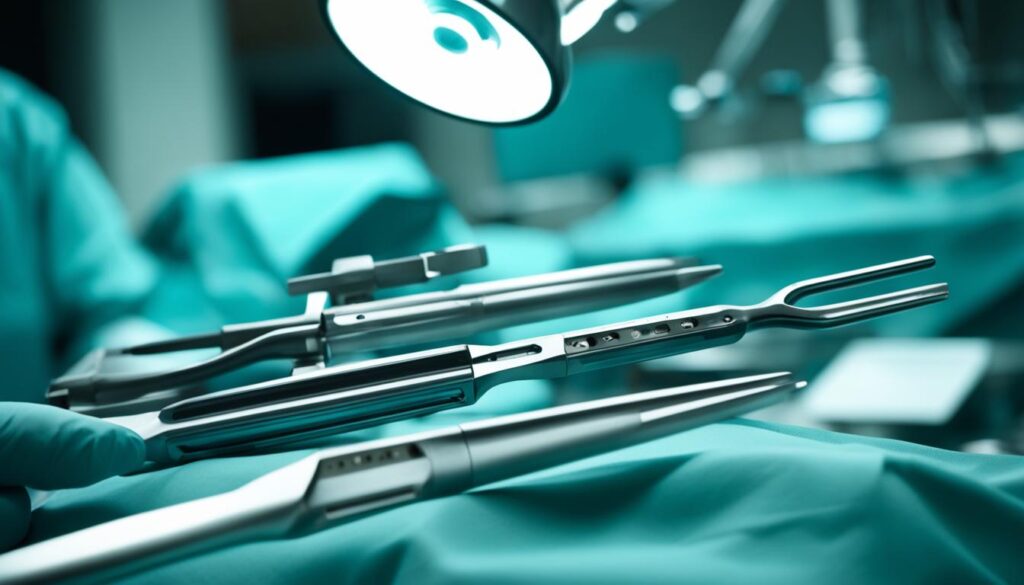
Surgical therapy for male infertility offers targeted solutions to address specific issues and improve fertility outcomes. It is important to consult with a healthcare provider specializing in male reproductive health to determine the most appropriate surgical approach based on individual circumstances.
Sperm Retrieval for Assisted Reproductive Techniques
In cases where there is no sperm in the ejaculate or a significant low count, sperm retrieval techniques can be used in conjunction with assisted reproductive techniques. These procedures are specifically designed to obtain viable sperm for use in fertility treatments.
One common method is testicular sperm extraction (TESE), which involves retrieving sperm directly from the testicle. TESE is a minimally invasive procedure that can be done under local anesthesia. A small incision is made in the scrotum to access the testicle, and a small sample of tissue is taken to extract the sperm. The extracted sperm can then be used fresh or frozen for future use in treatments like in vitro fertilization (IVF) or intracytoplasmic sperm injection (ICSI).
TESE is typically recommended for men who have obstructive azoospermia, a condition where sperm production is normal, but there is a blockage preventing the sperm from being ejaculated. It can also be used in cases of non-obstructive azoospermia, where there is a problem with sperm production.
During the TESE procedure, multiple samples may be taken from different areas of the testicle to increase the chances of finding viable sperm. The extracted sperm is then evaluated for quality and quantity before being used in assisted reproductive techniques.
It’s important to note that TESE is just one of several sperm retrieval techniques available. Other methods include testicular sperm aspiration (TESA), microdissection testicular sperm extraction (micro-TESE), and percutaneous epididymal sperm aspiration (PESA). The specific technique used will depend on the individual’s circumstances and the advice of their medical team.
Advantages of Sperm Retrieval Techniques
Sperm retrieval techniques offer several advantages for couples undergoing assisted reproductive techniques:
- Increased chances of successful fertilization: By directly retrieving sperm from the testicle, these techniques bypass any issues with sperm delivery or production, increasing the chances of successful fertilization.
- Option for genetic testing: The retrieved sperm can undergo genetic testing to detect any chromosomal abnormalities or genetic disorders, allowing for informed decisions regarding the use of the sperm in assisted reproduction.
- Use in conjunction with assisted reproductive techniques: The retrieved sperm can be used in treatments like IVF or ICSI, where sperm is directly injected into an egg to facilitate fertilization.
Conclusion
Understanding male infertility is crucial for individuals and couples facing fertility challenges. It is important to recognize that male infertility can have various causes, ranging from medical conditions to lifestyle factors. The good news is that many underlying issues can be addressed and treated with the help of healthcare professionals.
If you and your partner are experiencing difficulty in conceiving, it is vital to seek medical evaluation and guidance. By undergoing a thorough diagnosis and testing process, healthcare providers can determine the specific cause of male infertility and recommend appropriate treatment options. These may include assisted reproductive techniques, such as in vitro fertilization (IVF) or intracytoplasmic sperm injection (ICSI), as well as lifestyle changes and medication, depending on the individual case.
Advancements in the field of reproductive medicine have greatly improved the chances of achieving a successful pregnancy for couples dealing with male infertility. Through the support and guidance of healthcare providers, you can navigate this journey with confidence, knowing that effective solutions are available.
Remember, understanding male infertility is the first step toward finding solutions. By seeking medical evaluation and exploring the available treatments, you can increase your chances of starting or expanding your family. Don’t hesitate to reach out to healthcare professionals who specialize in reproductive health – they are here to support you every step of the way.
FAQ
What are the causes of male infertility?
Male infertility can be caused by factors such as low sperm production, abnormal sperm function, or blockages that prevent the delivery of sperm. It can also be influenced by various illnesses, injuries, chronic health problems, and lifestyle choices.
What are the symptoms of male infertility?
The main sign of male infertility is the inability to conceive a child. Other symptoms may include difficulty with ejaculation, reduced sexual desire, pain or swelling in the testicle area, recurrent respiratory infections, inability to smell, abnormal breast growth, decreased facial or body hair, or a lower than normal sperm count.
When should I see a doctor for male infertility?
It is recommended to see a doctor if you have been unable to conceive a child after a year of regular, unprotected intercourse. However, it is also important to seek medical help sooner if you experience issues with sexual function, pain or swelling in the testicle area, or if you have a history of testicle, prostate, or sexual problems. Additionally, if your partner is over the age of 35, it is advisable to seek medical advice.
What are the common causes of male infertility?
Common causes of male infertility can include varicocele, infections, ejaculation issues, antibodies attacking sperm, tumors, undescended testicles, hormone imbalances, defects in sperm transport, chromosome defects, problems with sexual intercourse, celiac disease, certain medications, and prior surgeries. Environmental factors like exposure to chemicals or heavy metals, radiation or X-rays, and overheating the testicles can also contribute to male infertility.
What are the factors contributing to male infertility?
Health and lifestyle factors can impact male fertility. These factors include smoking tobacco, alcohol use, drug use, obesity, certain infections, exposure to toxins, overheating of the testicles, and certain medical conditions such as liver or kidney disease. Genetic conditions and unknown causes (idiopathic male infertility) can also play a role.
What are the risk factors for male infertility?
Risk factors for male infertility include smoking tobacco, alcohol use, certain illicit drugs, being overweight, past or present infections, exposure to toxins, overheating the testicles, previous testicle or pelvic surgeries, a history of undescended testicles, and genetic disorders related to fertility.
How is male infertility diagnosed and tested?
To diagnose male infertility, healthcare providers may review the patient’s health history, perform a physical exam, and conduct various tests. These tests may include semen analysis, blood tests, ultrasound or imaging tests, and testicular biopsy.
What are the treatment options for male infertility?
The treatment for male infertility depends on the underlying cause. Fertility-focused treatments may include artificial insemination, in vitro fertilization (IVF), intracytoplasmic sperm injection (ICSI), medications to address hormonal imbalances, and surgery to correct blockages or structural issues. Lifestyle changes may also be recommended.
Are there non-surgical treatments for male infertility?
Yes, some male fertility problems can be treated without surgery. Conditions like anejaculation or retrograde ejaculation may be managed with drugs or non-invasive procedures like penile vibratory stimulation or rectal probe electroejaculation. Genital tract infections can be treated with antibiotics or anti-inflammatory medications. Hormonal imbalances can be managed through medication or hormone replacement therapy.
What are the surgical treatments available for male infertility?
Surgical intervention may be necessary to address male infertility. For example, varicoceles can be treated with a minor outpatient surgery called varicocelectomy. Azoospermia can be treated with procedures like microsurgical vasovasostomy or vasoepididymostomy. Surgical options are also available for certain genetic conditions and unknown causes of male infertility.
How is sperm retrieval done for assisted reproductive techniques?
In cases where there is no sperm in the ejaculate or a significantly low count, sperm retrieval techniques can be used in conjunction with assisted reproductive techniques. Procedures like testicular sperm extraction (TESE) can retrieve sperm directly from the testicle. This sperm can be used fresh or frozen for future use in treatments like in vitro fertilization (IVF) or intracytoplasmic sperm injection (ICSI).







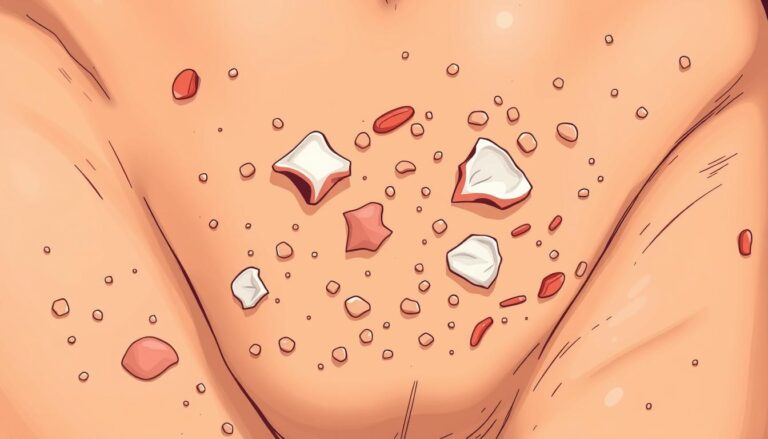
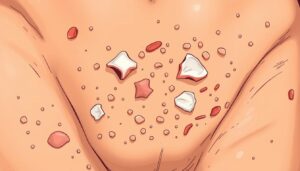
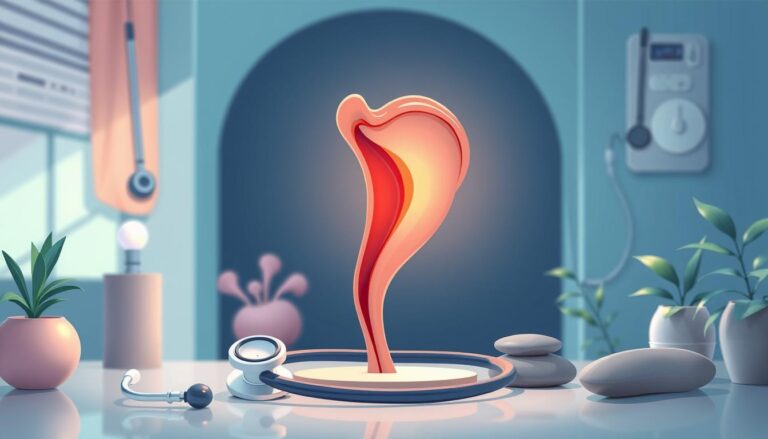



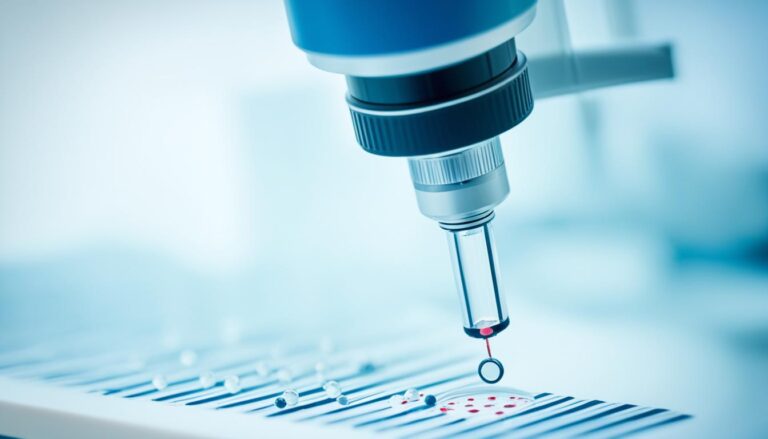


Leave a Comment